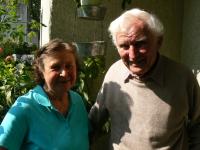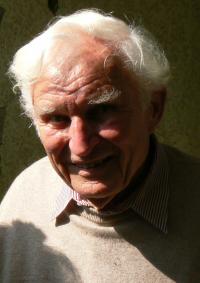Nikdy jsem nechtěl být vojákem

Download image
Emil Klier se narodil 3. července 1926 v obci Ottengrün (česky Otov) jako jeden ze tří synů Georga a Berty Klierových. Po náhlé smrti svého otce se dostal do dětského domova, protože jeho matka musela kvůli uživení rodiny začít pracovat v továrně. V dětském domově zůstal až do ukončení školní docházky. V prosinci 1944 byl povolán k Reicharbeitsdienst, kde po svém zranění při vojenském výcviku zůstal pracovat v kanceláři. V květnu 1945 se dostal do amerického válečného zajetí a později do francouzského, pak do Rakouska. Odtud přešel legálně do Německa, kde již natrvalo zůstal. Nejdříve se zde vyučil malířem pokojů a později se přestěhoval do Bad Godesbergu (dnes městská část Bonnu). V roce 1985 se poprvé a naposledy podíval do staré vlasti. Zemřel 9. května roku 2020.

